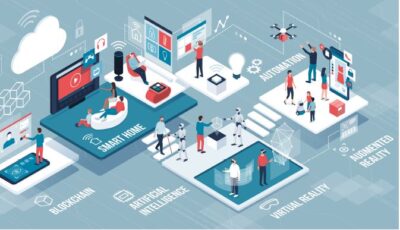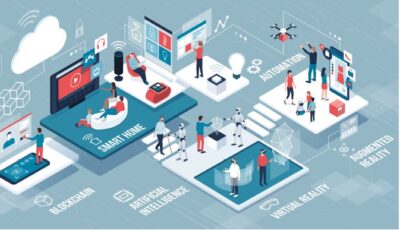
This site
is mobile
responsive
The pace of digitalisation is accelerating around the world and SMEs need to embrace digital technologies towards achieving future growth. In keeping with the momentum from the implementation of Industry4WRD: National Policy on Industry 4.0 that focused on the manufacturing and related services sectors, the Government has recently launched the National Fourth Industrial Revolution (4IR) Policy in July 2021.
This new policy, which complements the Digital Economy Blueprint and other related initiatives, seeks to increase the country’s readiness in making use of the 4IR, thereby expediting Malaysia’s journey to becoming a high-income nation through the use of technology and digitalisation.
There is a need to embrace 4IR to remain competitive in the face of a volatile, uncertain, complex and ambiguous (VUCA) environment.
While this has been generally acknowledged, it has been accompanied by several issues hindering the progress of industry players especially those operating in the less industrialised economic regions of the country. Based on MIDA’s data for the Industry4WRD Intervention Fund, about 71% of the approvals were from the west coast and southern region such as Selangor, Penang and Johor.
Therefore, there is a need for other states to increase their participation in new technologies brought forward by 4IR.
The issues of internet and broadband connectivity will be the foremost critical enabler of the progression towards the digitalisation of companies. It is encouraging to see that the Government’s new policies have emphasised this and that development activities are already underway to address the matter. In 2019, Malaysia launched the National Fiberisation and Connectivity Plan (NFCP) 2019-2023, to improve broadband quality and coverage. This plan was reviewed in 2020 and is known today as ‘Pelan Jalinan Digital Negara’ (JENDELA) with improved targets. JENDELA is the Government’s plan to expand the reach of internet to every corner of Malaysia, in preparation for the 5G Technology.
The Government is aware that the task to digitalise companies could be daunting due to the limited economies of scale for SMEs especially the cottage industry. Some SMEs are also skill-intensive and hence, not all areas could be fully automated. The situation is also similar for industries that produce products that are fulfilling niche local demand or are not connected to the supply chain network anchored by bigger companies or MNCs. For these companies, MIDA would like to encourage local companies to explore various facilities offered by MIDA for the manufacturing and services sectors. The local SMEs could also leverage MIDA’s Lighthouse programme whereby successful companies will act as beacons to guide the others projects/companies in Malaysia in transforming and overcoming challenges in upgrading their existing production systems.


Apart from that, there is a need to increase digital literacy and educate the benefits of technology in outreach promotional activities. The usage of digital methods must be prioritised. The prevalent prerequisite knowledge such as management of cashflows, digitalisation of sales approach, access to financial facilitation and basic proposals, are also important to build up the business before further expansion can be considered. To create an inclusive digital society, the Government through various initiatives outlined under the Digital Economy Blueprint will provide, among others, an online platform to facilitate better access for vulnerable groups. Through this initiative, vulnerable groups such as B40, women and people with disabilities will be provided with opportunities to become digital entrepreneurs in uplifting their socioeconomic status.
The disruption brought by COVID- 19 has changed the way we work. More sectors are turning to digital technology and are utilising data to leverage growth opportunities and enable greater efficiency. All stakeholders must realise that these changes will be driven by new mindsets and behaviours that society is now starting to adopt.
As Malaysia welcomes the new digital economy, it is no longer an option but a necessity to embrace digital transformation and access learning opportunities to develop in-depth and holistic skills to thrive in this new era.

Source: Newsletter August 2021